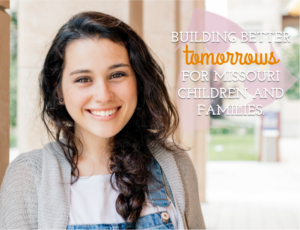 Amy and her two younger brothers were raised by their single mother. Their dad left years ago, unable to manage the challenges of parenthood. The siblings could count on few adults in their life. Most struggled with addiction and Amy learned early in life that drugs were their priority.
Amy and her two younger brothers were raised by their single mother. Their dad left years ago, unable to manage the challenges of parenthood. The siblings could count on few adults in their life. Most struggled with addiction and Amy learned early in life that drugs were their priority.
When Amy’s mom died of an overdose two years ago, no one – except for Amy and her brothers – seemed incredibly shocked. The other adults in Amy’s life acted as if this loss was expected, but Amy was shattered. She felt like her entire world died with her mother.
With no one in their family equipped to care for them, the sibling group was placed in a foster home. The change in environment was one more blow in Amy’s world. She struggled to trust her foster parents. The new school she attended was large and daunting. She had trouble relating to the other kids who all seemed to have perfect lives.
Amy skipped school one day to escape the pressure. The school alerted her foster parents of the absence and together they took action, knowing Amy needed help. They were able to arrange a meeting with the LFCS school-based counselor and make a plan. Reluctantly, Amy agreed to meet with the counselor to discuss the recent changes in her life.
At first, Amy would not share much. She even skipped a few scheduled meetings because she was afraid to face her feelings. With each counseling session, Amy became more comfortable. She was able to reveal her anger, sadness, and disappointment in the adults who were supposed to put her and her brothers first.
As she shed her resentment, Amy was able to identify positive aspects of her life that she previously overlooked. She was able to forgive her mom and the other adults who had disappointed her for years. Rather than focus on the negative events of her past, Amy learned to put her attention towards the elements of her life she could control: diet, exercise, school work, and her attitude.
Because she was given the support she needed, Amy’s life was changed forever. She was given an opportunity to break the cycle of abuse and addiction and to forge her own path. Although there will be difficulties ahead, Amy is prepared to build a better tomorrow for herself.
Thousands of kids, like Amy, are struggling to manage the impact of childhood trauma on their lives. Two thirds of all kids will experience at least one traumatic event by the age of 16. Trauma can cause both short-term and long-term impacts. For teens, trauma can result in feelings of depression, self-harming behaviors, abusing alcohol or drugs, or participating in other risky behaviors. By addressing trauma through professional mental health counseling, we can improve outcomes for those we serve, making generations of children and families across Missouri safer and stronger together.
Help improve the lives of children and families by making a gift to LFCS today. Together, we can truly make a difference!
